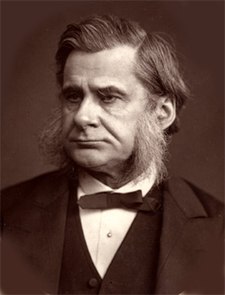Archives for June 2009
New Book on Climate Change
 IN his book ‘The Climate Caper’, with a light touch and nicely readable manner, Professor Paltridge shows that the case for action against climate change is not nearly so certain as is presented to politicians and the public. Read more here.
IN his book ‘The Climate Caper’, with a light touch and nicely readable manner, Professor Paltridge shows that the case for action against climate change is not nearly so certain as is presented to politicians and the public. Read more here.
Defining the Sceptics (Part 1)
 “THE improver of natural knowledge absolutely refuses to acknowledge authority, as such. For him, scepticism is the highest of duties; blind faith the one unpardonable sin.”
“THE improver of natural knowledge absolutely refuses to acknowledge authority, as such. For him, scepticism is the highest of duties; blind faith the one unpardonable sin.”
This quote from Thomas Huxley is a favourite among so called ‘climate sceptics’.
Mr Huxley, a self-taught 18th Century British biologist ruthlessly attacked the established consensus in defence of Charles Darwin’s new theory of evolution by natural selection.
The word sceptic has come to be associated with those who doubt the accepted consensus on anthropogenic global warming. It is generally used by non-sceptics disparagingly to suggest this group would doubt any assertion or apparent fact.
Some sceptics who understand the use of the term in this classic sense insist they are not sceptics, but rather rationalist. The outspoken Australian geologist Bob Carter is a case in point.
Others embrace the label as meaning a person who seeks the truth. This meaning is consistent with Mr Huxley’s writings.
Of course few doubters of the modern consensus on anthropogenic global warming are always true to Thomas Huxley’s ideals, but it is surely a worthy goal – to seek the truth above all else. [Read more…] about Defining the Sceptics (Part 1)
AGW is Just a Theory
“THE scientific method is a valuable way to advance objective knowledge. By testing a hypothesis against observation, it can either be falsified or supported. Not proved, of course, but nevertheless over time sufficient evidence can accumulate for a hypothesis to be generally accepted as the best available explanation. It is then known as a theory. Hence, although the vast majority of scientists and citizens (at least in Europe) accept Darwin’s description of evolution, this is still regarded as a theory rather than fact. This is important, because as our understanding develops, apparently satisfactory theories may be replaced by others.
Hot City or Global Warming?
 An analysis of the historical temperature data for the state of Victoria in Australia, including the city of Melbourne, suggests an Urban Heat Island (UHI) effect but no general warming trend.
An analysis of the historical temperature data for the state of Victoria in Australia, including the city of Melbourne, suggests an Urban Heat Island (UHI) effect but no general warming trend.
Urban Heat Island versus Global Warming – A Study of One Region
By Michael Hammer
CITIES represent concentrations of commerce and energy use. This energy release raises the temperatures in the immediate vicinity. Cities are also areas where there is intense development with extensive masonry constructions, skyscrapers, paved surfaces and little vegetation.
The Already Bankrupt Brown Green
IN the south east of Tasmania, there was once a thriving timber town known as Wielangata. In its heyday it had a general store, bakery, blacksmiths’ shops, school and of course several saw mills. Wielangta was ravaged by bushfires in the 1920s and abandoned in 1928.
Australian Greens’ Senator Bob Brown has been claiming the area as pristine forest and suing those with permission to log it: Not log it to destroy it, but log it as part of a sustainable rotation.


 Jennifer Marohasy BSc PhD has worked in industry and government. She is currently researching a novel technique for long-range weather forecasting funded by the B. Macfie Family Foundation.
Jennifer Marohasy BSc PhD has worked in industry and government. She is currently researching a novel technique for long-range weather forecasting funded by the B. Macfie Family Foundation.